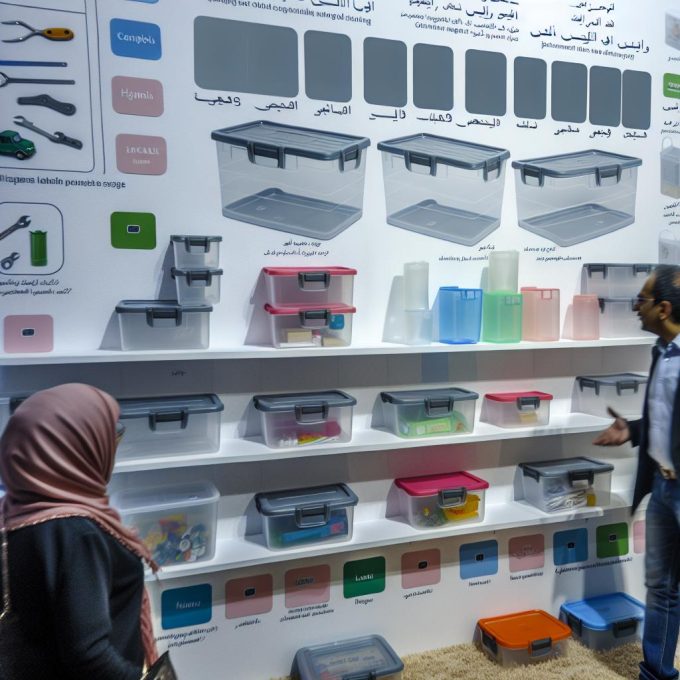The Benefits of Plastic Containers
Plastic containers have increasingly become a favored choice for storage, offering a unique blend of lightweight functionality and robust durability. This dual-quality advantage makes them a practical solution for a myriad of personal and commercial storage necessities. Their particular benefit lies in their resistance to breakage and ease of transport, setting them apart from traditional storage alternatives such as glass or metal.
Lightweight Nature
One of the most compelling advantages of plastic containers is their lightweight nature. This quality not only facilitates ease of handling for individuals but also plays a substantial role in reducing transportation costs. Whether you are relocating household items or facilitating the movement of goods within a supply chain, the diminished weight of plastic containers often translates into a direct cost advantage. This decreased mass leads to lower fuel consumption in the logistics sector, ultimately impacting the overall expenditure of transportation. For personal use, the ease of carrying or handling during house cleaning or rearranging provides remarkable convenience.
Durability
The resilience of plastic containers is another factor that cannot be overstated. Unlike other materials prone to shattering or denting, plastic can endure a significant amount of rough handling without compromising the integrity of its contents. This durability renders them suitable for a wide range of environments — spanning from a garage to complex industrial settings. Their robust structure ensures that the items they encase remain undamaged over extended periods, offering peace of mind for users relying on them for long-term storage.
Variety of Applications
The versatility of plastic containers allows them to be utilized across diverse domains. Within households, they serve as reliable storage for anything ranging from kitchen supplies to textiles and garments. In commercial sectors, plastic containers are integral in packaging and logistics operations. Their design flexibility lets them be tailored into countless shapes and sizes, perfectly aligning with specific storage requirements. This adaptability enhances their appeal to different industries, each with unique demands and spatial constraints.
Innovative Design Solutions
Recent advancements have seen plastic containers being designed with innovative features such as stackability, secure locking mechanisms, and even airtight seals. These enhancements not only maximize space efficiency but also ensure the preservation of stored goods. Airtight containers, for example, are particularly useful in preserving the freshness of food products, adding another layer of functional diversity to their repertoire.
Environmental Considerations
Despite the manifold benefits of plastic, it remains crucial to address environmental impacts. Traditional plastics are notorious for their non-biodegradable qualities and their contribution to pollution. Nonetheless, strides in recycling technologies and material innovation are progressively enhancing the sustainability of plastic containers. Many modern manufacturers have started offering recyclable and biodegradable options, thereby enabling consumers and businesses to incorporate sustainable practices without forgoing the inherent advantages of plastics. This shift towards a circular economy model in plastic production represents a responsible evolution in its usage paradigm.
Impact on Recycling Efforts
Emphasis on recycling has become paramount, and the plastic industry is gradually realigning its production practices towards more eco-friendly methodologies. The introduction of post-consumer recycled plastics into the manufacturing supply chain plays a critical role in this realignment. These efforts not only combat plastic waste but also encourage the development of robust recycling programs which enhance public participation and awareness regarding environmental sustainability.
Conclusion
In summation, plastic containers remain a steadfast, reliable, and efficient choice for a wide range of storage needs. Their lightweight, durable nature combined with growing innovations in recycling make them an asset in both personal and professional use cases. Although challenges continue to exist, particularly concerning environmental impact, ongoing advancements in recycling technology and sustainable manufacturing practices are paving the way for more responsible consumption and usage. As the dialogue around eco-conscious materials progresses, it remains hopeful that the benefits of plastics can be maximized without undermining environmental integrity.

